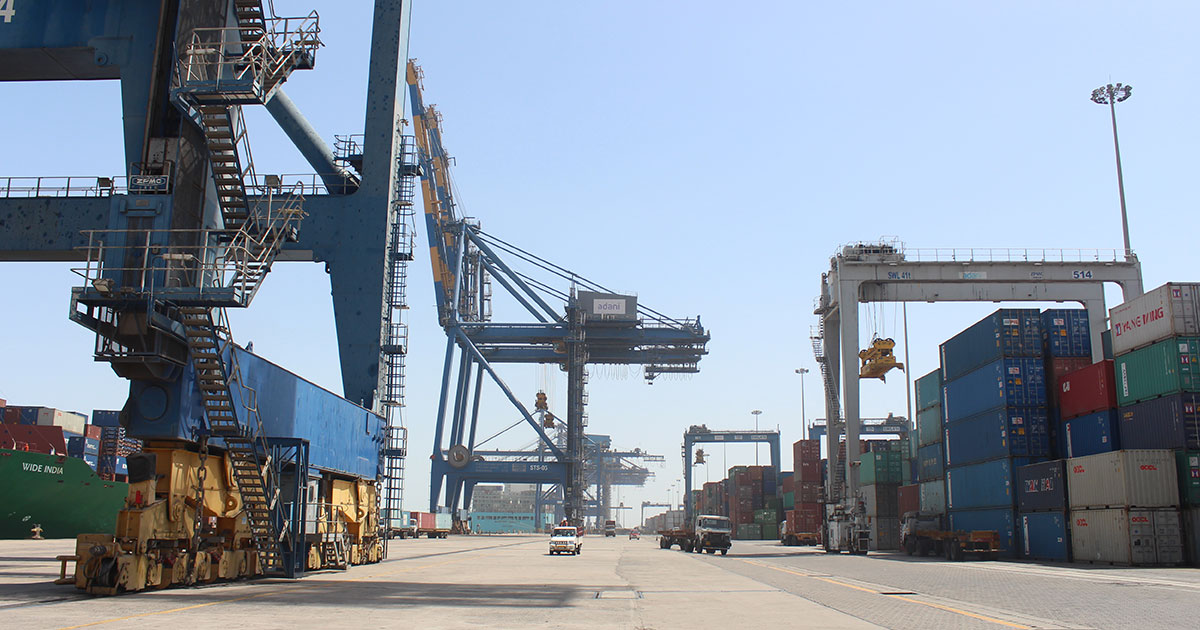The US pledges a $553 million investment in the Adani-owned Sri Lanka port to curb Chinese Influence
08 Nov 2023

In a strategic move aimed at countering China's influence in South Asia, the United States has pledged a substantial $553 million in financing for the development of a port terminal in Sri Lanka's capital, Colombo. The project, known as the West Container Terminal, is being spearheaded by Indian billionaire Gautam Adani and is set to significantly boost Sri Lanka's economic growth and regional integration with India.
The financing, provided by the International Development Finance Corp. (DFC), represents the largest infrastructure investment made by the U.S. government agency in Asia and ranks among its most substantial worldwide contributions. The DFC, in a statement, highlighted the project's potential to enhance Sri Lanka's economic growth and regional integration, particularly with India, which is a key partner for both nations.
The U.S. funding also reflects a concerted effort to diminish China's influence in Sri Lanka. This initiative comes in the wake of Sri Lanka's financial woes following extensive Chinese investments in port and highway projects, resulting in the country's substantial indebtedness to Beijing. India, too, seeks to rebalance the power dynamics in its neighborhood.
This commitment is part of the broader surge in DFC investments, which amounted to $9.3 billion in 2023. A U.S. official underscored the significance of the Sri Lanka port financing as a symbol of the United States' determination to play a more active role in development projects throughout the Indo-Pacific region.
China has been a significant investor in Sri Lanka, with investments totaling approximately $2.2 billion by the end of the previous year, establishing itself as the island nation's largest foreign direct investor. U.S. officials have publicly criticized Sri Lanka's underutilized southern Hambantota port, labeling it unsustainable and a component of China's "debt-trap diplomacy."
The DFC will collaborate with project sponsors, John Keells Holdings Plc and Adani Ports & Special Economic Zone Ltd., leveraging their local expertise and commitment to high-quality standards.
Colombo's port is a crucial hub in the Indian Ocean, given its proximity to international shipping routes. More than 90% utilization over the past two years has underscored the pressing need for additional capacity.
The U.S. financing not only bolsters the port project but also serves as an endorsement for the Adani Group, which has faced allegations of corporate fraud from Hindenburg Research and media investigations. The conglomerate, holding a majority stake in the controversial port project, has vehemently denied these accusations. Adani Group's investments in energy and ports in Sri Lanka faced criticism last year for their perceived opaqueness and close ties to New Delhi's interests.
Gautam Adani, a staunch supporter of Indian Prime Minister Narendra Modi, has repeatedly refuted claims that the investments serve primarily Indian interests, emphasizing their role in addressing Sri Lanka's requirements. A U.S. official declined to comment on the allegations directly but emphasized that the DFC employed rigorous due diligence when selecting projects.
The DFC, established during the Trump administration, was created to assist developing nations while advancing U.S. foreign policy objectives. Although it initially faced challenges due to the COVID-19 pandemic, it has rapidly accelerated funding in recent years. The agency's contributions have been instrumental in narrowing the development spending gap compared to China's prominent Belt and Road Initiative, according to a recent report from the AidData Institute at William & Mary in Virginia.
Scott Nathan, the CEO of DFC, articulated the agency's mission by stating that their funding would lead to "greater prosperity for Sri Lanka—without adding to sovereign debt—while at the same time strengthening the position of our allies across the region." The U.S. investment in Sri Lanka's Colombo port terminal underlines the nation's strategic commitment to fostering economic development and reinforcing alliances in the Indo-Pacific region.




















